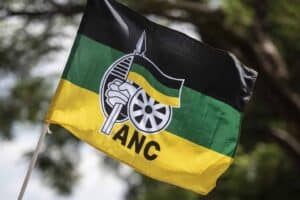Nelson Mandela's eldest granddaughter seeks 'acknowledgement’ and reparation from the British Royals... and what about the Sussexes?

A decade after the death of her iconic grandfather, Nelson Rolihlahla Mandela, on 5 December 2013, Ndileka Mandela has laid the blame for “climate apartheid” at Buckingham Palace’s gilded door.
Speaking on the sidelines of the COP28 climate summit in Dubai, the eldest granddaughter of South Africa’s first democratically elected president also addressed colonialism and reparation on BBC’s Sunday with Laura Kuenssberg.
ALSO READ: King Charles visits Kenya as colonial abuses loom large
Ndileka Mandela: Colonialism, reparation and climate apartheid
The social activist, who also authored I Am Ndileka – More than My Surname, said it was high time for Britain to acknowledge its role in colonising parts of Africa, arguing that the inequalities of climate apartheid on the continent was the result of its colonial legacy.
ALSO READ: King Charles told to return Cullinan diamonds, but what would SA do with them?
What is climate apartheid?

The late Archbishop Desmond Tutu coined the term “climate change apartheid” in the 2007/2008 UN Human Development Report.
According to TRT World, the concept is defined as follows: “Climate apartheid emerges from complex exchanges between racism and environmental exploitation.”
When Tutu coined the term, he was referring to the divide between developed nations and the developing world to cope with climate change.
This form of apartheid, according to Tutu, is set to worsen due to the increased occurrence of extreme heat conditions and flooding caused by climate change.
Simply put, wealthy nations and/or segments of a society would still be able to afford food, water and electricity while others will be left to suffer the brunt of these transformations due to climate change.
ALSO READ: COP28 Leaks: UAE sought to use climate summit to strike oil and gas deals – report
Ndileka Mandela: ‘Acknowledging before reparation’
Mandela was also asked on the programme whether she thought the British Royal Family should consider paying reparations.
“Yes I would, that is where healing begins,” she answered.
However, according to Mandela, there “has got to be first admission of the things” and “then you can talk of reparations”.
“I think it starts with acknowledging before reparation,” she explained.
“If there can be an acknowledgment of what was done to countries that were colonised. We are still suffering a great deal from colonisation in as far as our culture as black people is concerned.”
“So there has got to be first admission of the fact that yes, we acknowledge that we displaced you as a people. Then we can talk of reparations.”
On the programme, historian Andrew Roberts challenged Mandela’s view on colonialism and reparation, stating that “no king has owned slaves since Charles II”.
ALSO READ: Cullinan diamond: Royal Sceptre’s crown jewel with controversial past
Ndileka Mandela sides with Harry and Meghan

Mandela’s granddaughter also publicly expressed her solidarity and support for Prince Harry and Meghan Markle in the BBC One interview.
Her comments came after Kate Middleton and King Charles were accidentally published in the Dutch edition of Omid Scobie’s book Endgame as the two senior royals accused of making comments and asking questions about what the skin colour of Meghan and Harry’s firstborn, Archie, would be.
When asked whether she thought Harry and Meghan had been the victims of racism, Mandela’s granddaughter drew a comparison with her grandfather’s decision to flee to Johannesburg in 1941 to evade an arranged marriage.
“I believe that Harry and Meghan had to find their own voice, in a similar way that granddad had to find his own voice when he had to run away from an arranged marriage. So they should be given, like any other person, room to voice out whatever their misgivings are.
“I cannot speak to whether Harry and Meghan’s children have been discriminated against. I don’t have first-hand information of that.
“However, I can say that [Harry] should be allowed to voice out whatever it is that he wants to voice out, and to choose his own path.
“Had granddad not chosen his own path when he ran away from an arranged marriage, we would not have the South Africa that we talk about today,” Mandela said.
From Pollsmoor to the Palace
Late Queen Elizabeth II and Ndikela’s grandfather met on numerous occasions, with Mandela’s down-to-earth nickname for the British monarch being “Lizzie”.
Their years-long friendship started with an invite in 1991 to Madiba to a summit in Zimbabwe of the Commonwealth group of nations.
The Commonwealth had excluded apartheid South Africa in 1961 and Mandela, who had just been freed from prison and was not yet the country’s president, did not have the rank to attend a banquet held by the Queen.
Days before the summit was held, the British monarch, as the head of the Commonwealth, had also broken with a policy of neutrality and hailed the crumbling of the apartheid regime.
South Africa was readmitted to the Commonwealth in 1994, the year Mandela became president.
NOW READ: Queen Elizabeth II: The OG decoloniser, before decolonising was even a thing






